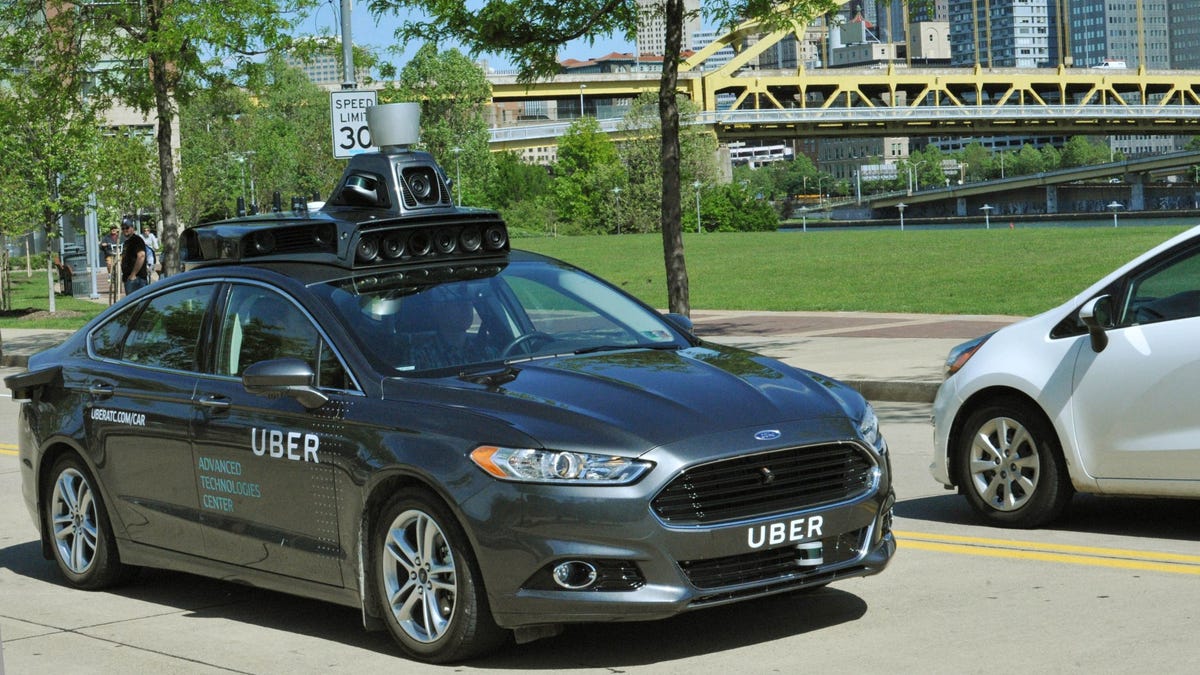Uber's first self-driving car pulls out onto the streets of Pittsburgh
The ride-sharing company hopes its autonomous vehicles will help cut congestion in cities and reduce the number of traffic accidents.

If you're looking forward to the day when an Uber whisks you across town without anyone behind the wheel, then good news: the ride-sharing company has shown off its first autonomous vehicle.
The car -- a Ford Fusion Hybrid -- has been shown taking to the streets of Pittsburgh. It's equipped with sensors, radars, laser scanners and high-resolution cameras, and is designed to gather mapping data as well as test its self-driving capabilities, Uber writes on its blog.
"When it's in self-driving mode, a trained driver will be in the driver's seat monitoring operations," the company explains. "Real-world testing is critical to our efforts to develop self-driving technology. We believe this technology will mean less congestion, more affordable and accessible transportation, and far fewer lives lost in car accidents."
Uber says it's still in the very early days of testing, so don't expect a driverless car pulling up at your door anytime soon. Somehow, the company managed to get this prototype out the door just in time to lay claim to being the first ride-sharing company to dabble in autonomy. Within the next year, Lyft plans to roll out autonomous electric Chevrolet Bolts, in an expansion of the partnership between the two companies.
Roadshow's own Tim Stevens thinks that this field is going to get even thicker, thanks to Apple. By investing $1 billion into China's home-brew Uber competitor, Didi Chuxing, it's possible that Apple isn't interested in creating cars that compete with traditional automakers. Instead, its foray into the auto industry could come as a sort of ride-sharing or car-sharing service, meant to compete with Uber and Lyft.



